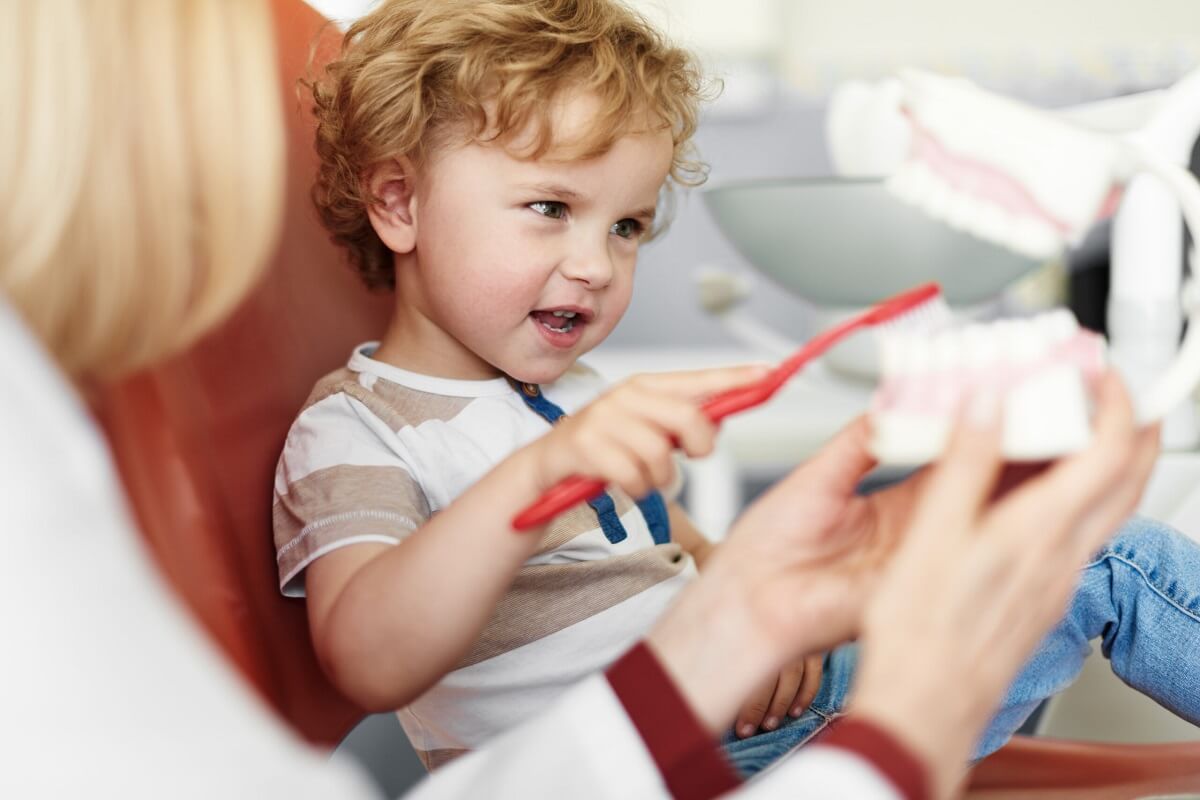
07 Jul 3 Types of Children’s Sedation Dentistry
As a parent, you understand the importance of maintaining your child’s oral health, and regular dental visits are a crucial part of that. However, for some children, the thought of going to the dentist can be scary or anxiety-provoking. In such cases, sedation dentistry can be a useful tool to help children relax and receive the dental care they need.
Nitrous Oxide
It also goes by the name “laughing gas” and is a common sedative used in pediatric dentistry. For children who feel mild anxiety or fear during dental procedures, it is a secure and reliable option. A mask covering the child’s nostrils is used to administer nitrous oxide, an odorless and colorless gas, which is combined with oxygen. The gas is inhaled by the child, who benefits from feeling at ease and comfort during the process. Following a dental appointment, the child can normally return to regular activities because nitrous oxide wears off quickly.
Oral Sedation
Oral medication is used in this form of sedation. The child receives the medication before the dental appointment, usually in the shape of a pill or a liquid. The medicine aids in calming the child’s anxiety and maintaining calmness throughout the procedure. However, due to the possibility of the infant becoming sleepy or drowsy, oral sedation necessitates close observation and supervision. Following the dentist’s recommendations for fasting before the procedure and providing a secure means of transportation after the appointment is important.
General Anesthesia
It is the most intense type of sedation and is usually saved for kids who need extensive dental work, has extreme dental anxiety, or have other special requirements. To administer general anesthesia, children must be put into a deep sleep during which they are unconscious and are not in any pain.
The child’s vital signs are carefully monitored throughout the operation, which is typically carried out by an anesthesiologist in a hospital or surgical setting. Although general anesthesia carries some risks and necessitates careful consideration of the child’s overall health and medical history, it helps your dentist near you to complete complicated dental operations quickly.
It is important to note that not all children require sedation dentistry and many can have successful dental visits without any need for sedation. However, for children who experience fear, anxiety, or special needs, sedation dentistry can be a valuable option to help them receive the dental care they need calmly and comfortably.
FAQs
Does my child need sedation dentistry?
Younger or more frightened children do worse with mild sedation than older or younger children. They can typically readily wake up and breathe on their own. Most kids won’t recall any details of the process. These medications can be securely administered by dentists and oral surgeons as they perform dental procedures.
Is sedation dentistry safe?
Dental sedation enables children to feel peaceful and relaxed while undergoing their procedures. Sedation dentistry near you is a safe and effective technique that also has several advantages. It makes people feel more at ease as they receive the necessary dental treatment.
Will my child feel any pain?
After anesthesia, kids require some time to recuperate. The affected area will gradually start to recover sensation after receiving local and regional anesthesia. Then, there may be some discomfort there for your kid. Your child might be able to leave the hospital in a few hours, depending on the procedure and type of sedation used.
How long do the sedatives last?
The duration of these sedative techniques usually last for 2 to 8 hours after the procedure is completed. Ultimately, the duration of the dental sedation will depend on the type of medication used. Several patients report that they do not recall ever being at the oral surgeon’s office due to the amnesic effect that many patients experience from oral medications.
Sedation dentistry in Fort McMurray can provide an effective solution for managing dental anxiety and fear in children. Nitrous oxide, oral sedation, and general anesthesia are three common types of sedation used in pediatric dentistry, each with its benefits and considerations.
It’s crucial to work closely with a qualified pediatric dentist in Fort McMurray to determine the most appropriate type of sedation for your child’s needs and ensure their safety and comfort during dental visits. Remember, a healthy and happy smile is an essential part of your child’s overall well-being.
So, schedule that dental appointment at Maxx Dental Group and help your child have a positive dental experience!


Sorry, the comment form is closed at this time.